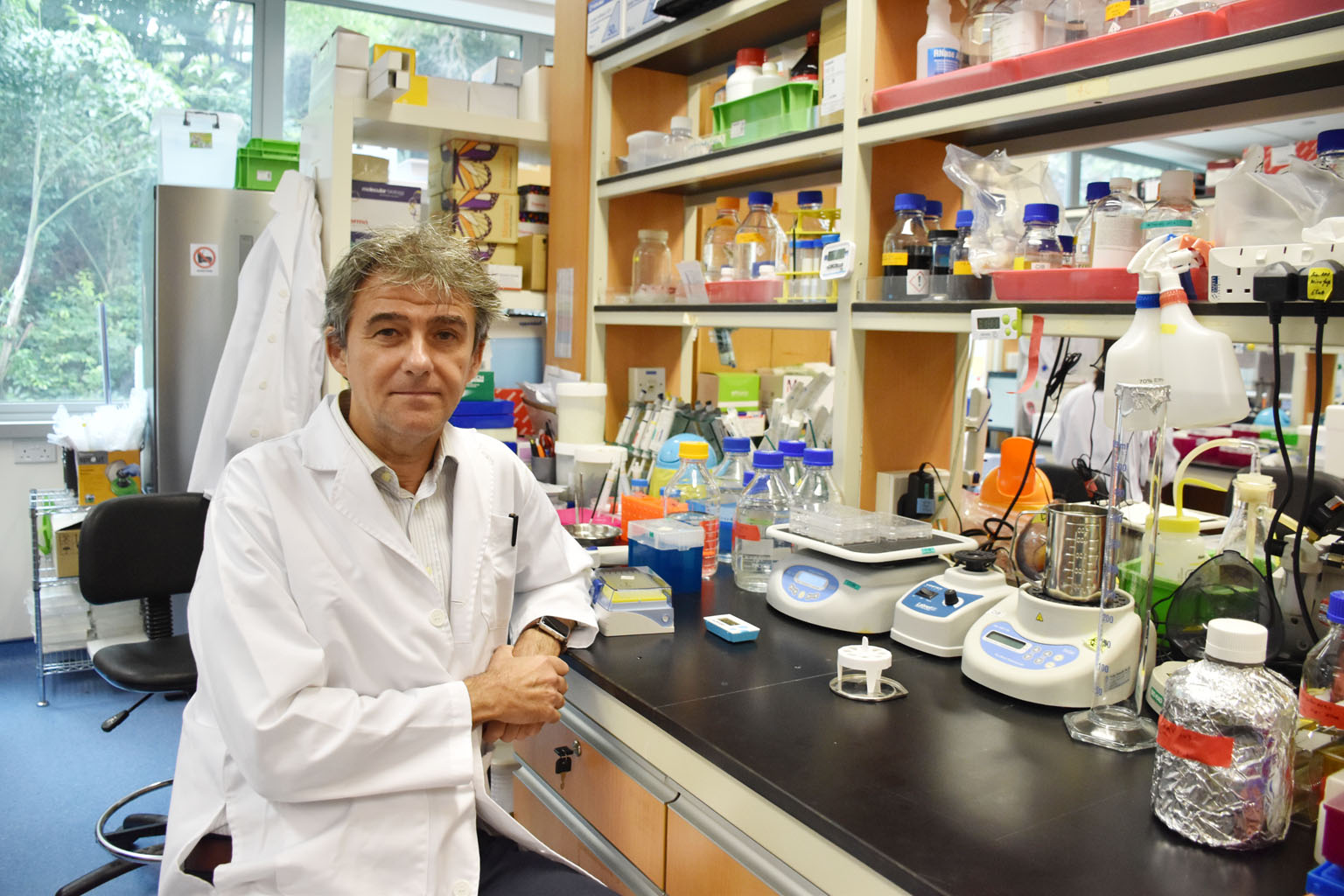For subscribers
NUS team develops man-made molecule that can 'kill' skin cancer cells
Medical school researchers develop molecule that can 'kill' melanoma skin cancer cells
Sign up now: Get ST's newsletters delivered to your inbox

Professor Carlos Ibanez says the use of the molecule to activate the "death receptor" of melanoma skin cancer cells presents an option for a new treatment method for the remaining 45 per cent of melanoma skin cancer patients for whom current treatment fails.
PHOTO: NUS YONG LOO LIN SCHOOL OF MEDICINE
Cheryl Teh
Follow topic:
Researchers at the National University of Singapore's Yong Loo Lin School of Medicine say they have developed a molecule that can "kill" melanoma skin cancer cells.
The man-made molecule is said to control the growth of cancer cells by activating a "death switch", starting a process which causes the cells to die.

